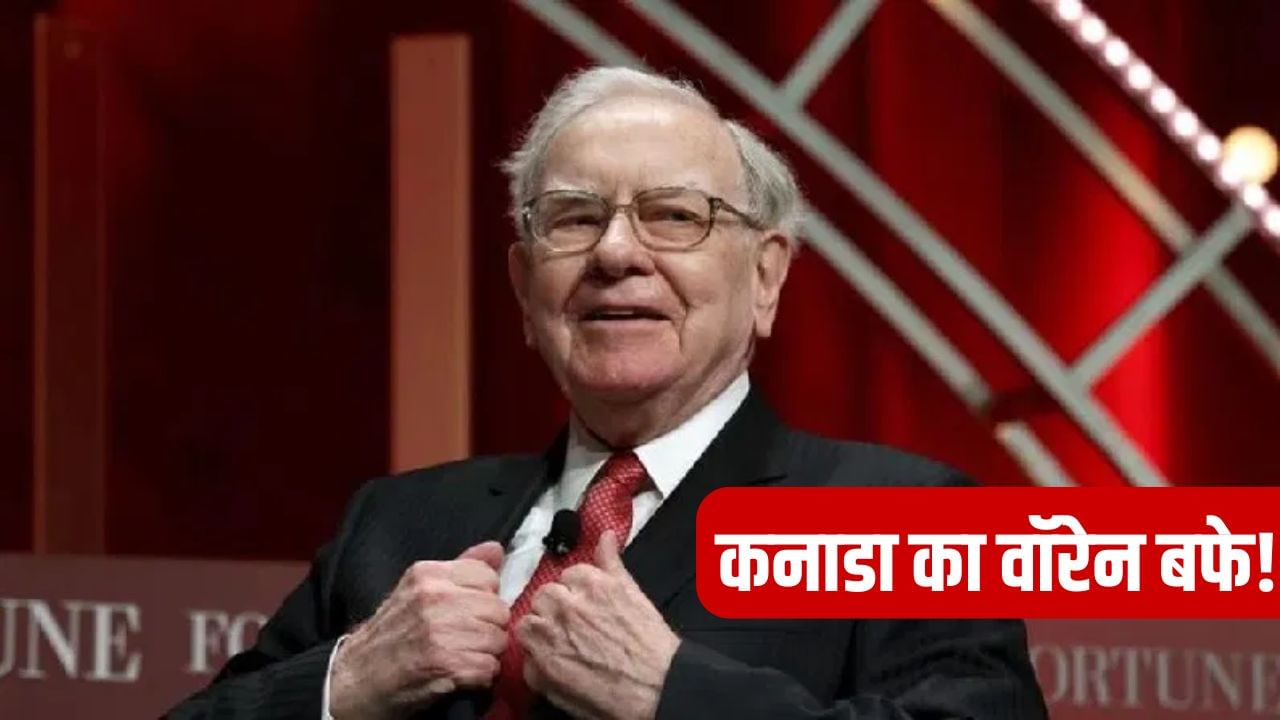warren buffett
When Indian-Canadian billionaire Prem Vatsa left Hyderabad in the early 1970s with just $8 in his pocket, no one would have imagined that this calm and confident young man would one day be called Canada’s Warren Buffet. Four decades later, Vatsa is best known as the creator of renowned financial conglomerates such as Fairfax Financial Holdings. His success did not come overnight, but is the result of patience, discipline and long-term thinking. Let us tell you in detail about Prem Vatsa, who is called Boren Buffet of Indian origin in Canada.
According to the book The Fairfax Way, his son Benjamin Watsa will later become the chairman of Fairfax Financial Holdings, reports ET. Fairfax, which started as a small insurance business in 1985, today has assets of more than $100 billion and also has major investments in India. The value of the company’s shares has increased four times since October 2022.
journey from hyderabad to heights
Born in a school teacher family in Hyderabad in 1950, Prem Vatsa was hardworking and ambitious since childhood. He studied from Hyderabad Public School. This is the school from where famous people like Satya Nadella, Shantanu Narayan and Ajay Banga (World Bank) have also studied. After this he took a degree in Chemical Engineering from IIT Madras.
Vatsa wanted to study management further. He had passed the IIM exam, but fate took him to Canada. His elder brother was already in Canada and his father wanted Vatsa to go there too. Vatsa says that I had no desire to leave India, but at the age of 22 you obey your father. After going to Canada, he did MBA from Western Ontario University. To meet the expenses of his studies, he sold air conditioners and heaters. This humility and hard work later became an important part of his life.
This is how I started investing
Vatsa’s career began in 1974 when he joined Confederation Life Insurance Company (Toronto) as a research analyst. This was a matter of good fortune for him, because he was the only candidate for that post. There he learned Benjamin Graham’s value investing principles from his mentor John Watson. That means investing in such companies which are being sold at less than their real value and whose foundation is strong. Vatsa made this idea the basis of his thinking. He never thought of making quick profits or speculating. Rather, just like Warren Buffet, he always gave priority to patience, discipline and real values.
- About ten years later, in 1984, he started his own company named Hamblin Vatsa Investment Council.
- A year later, he bought Markel Financial, a failing trucking insurance company that was about to close. Watsa reorganized it and renamed it as Fairfax Financial Holdings.
- In 1987, its name was changed to Fairfax, which stood for Fair, Friendly Acquisitions.
Fairfax’s principle
Vatsa’s business philosophy is based on a few key points. Honesty, long-term thinking and disciplined risk management are its basis. In the insurance business, he adopted a model in which the money received from insurance premiums (float) was invested wisely, so that profits increased over time. This method was exactly like Berkshire Hathaway.
Watsa predicted the recession of 1987, the collapse of Japan in 1990 and the US recession of 2008. When other investors were facing losses, Vatsa took advantage of the opportunity. Although the company suffered losses from challenges like Hurricane Harvey, Irma, Maria and COVID-19, it always bounced back. By 2025, the value of Fairfax’s shares will have quadrupled from 2022.
7 billion dollar investment in India
In 2014, Vatsa formed Fairfax India Holdings, which invests in India. So far the company has invested $ 7 billion (about Rs 58,000 crore) in India and plans to invest another $ 5 billion in the next five years. His son Ben Vatsa (46) is following his father’s path and running a fund company named Marvel Capital, which invests in Indian stocks. Fairfax has stakes in IIFL Group and CSB Bank and also invests in finance, infrastructure, manufacturing and logistics. Vatsa believes that India is the best investment destination for the future.
